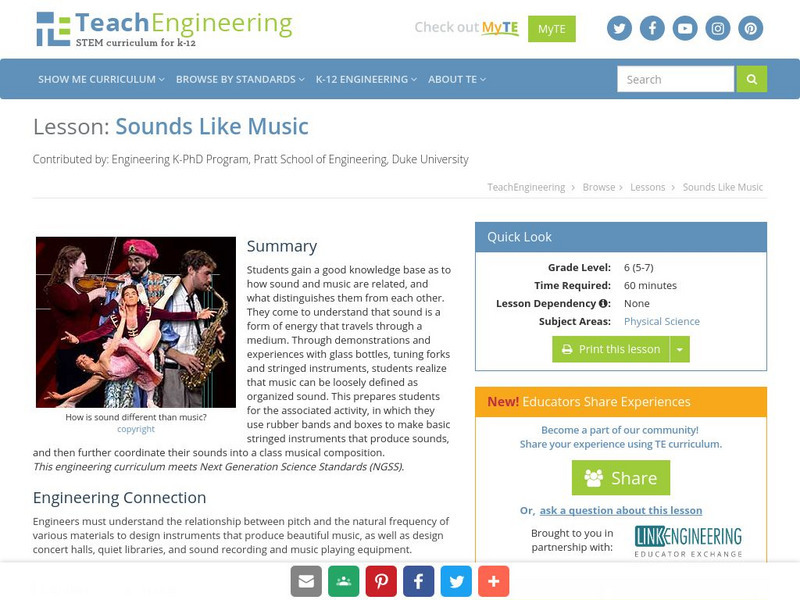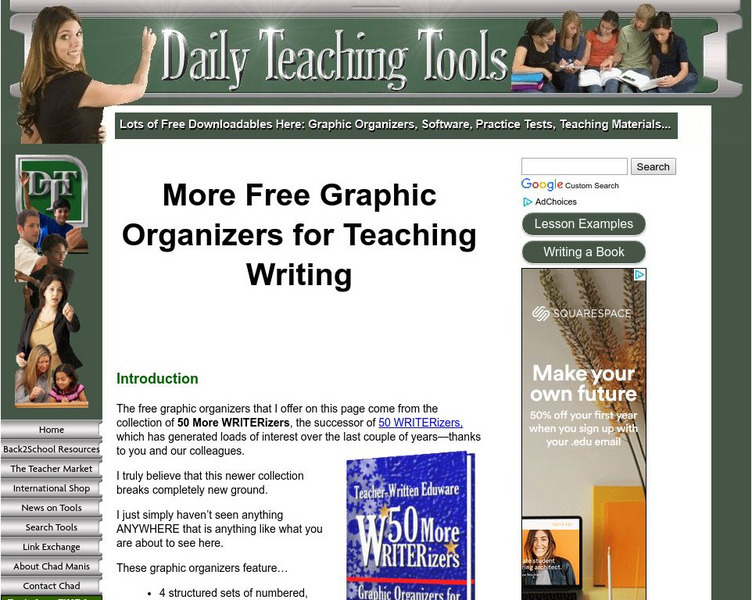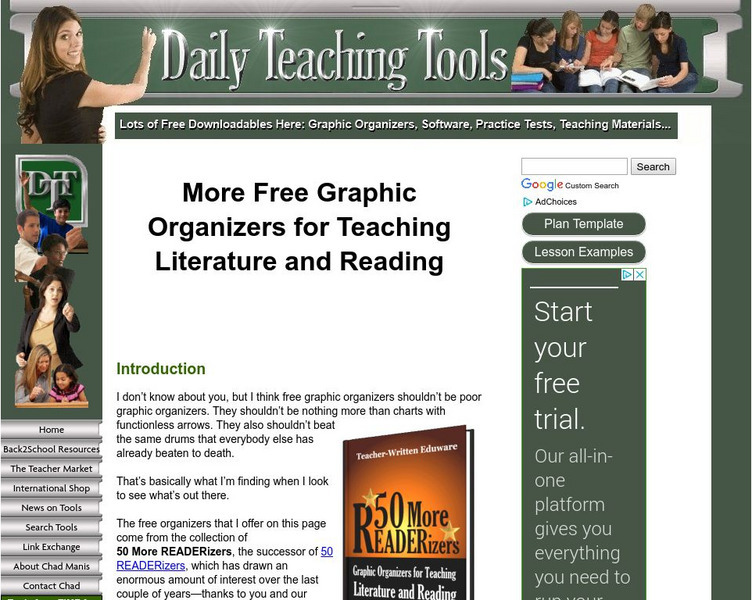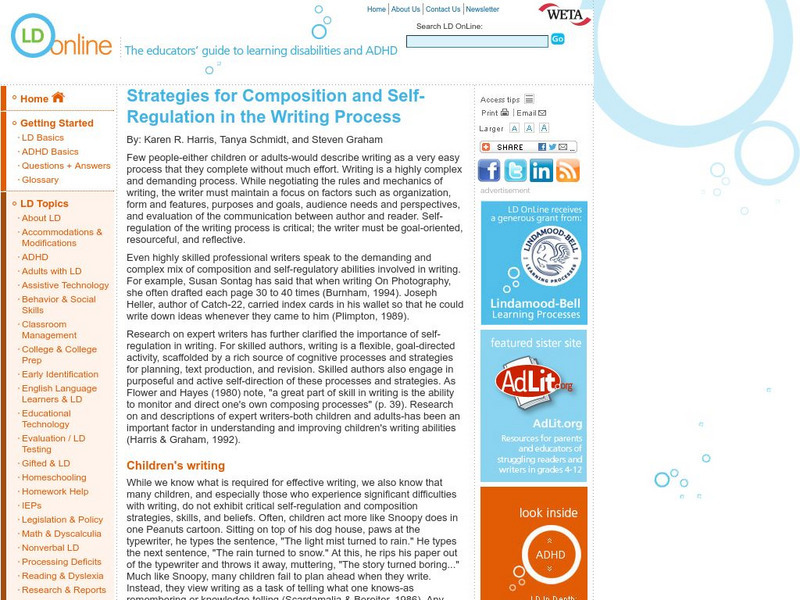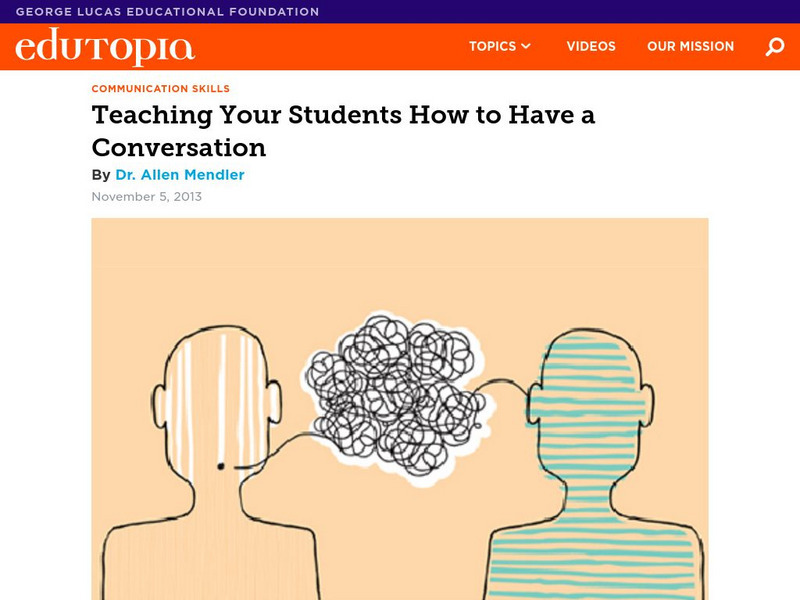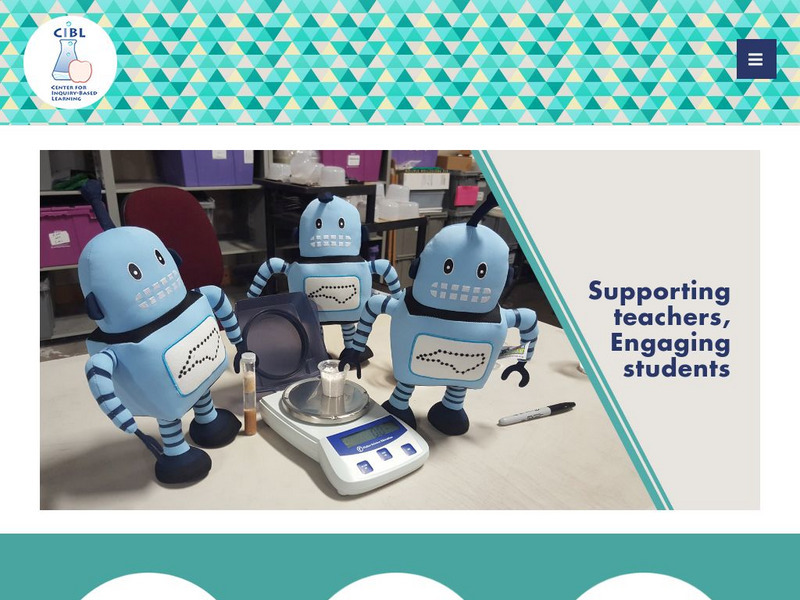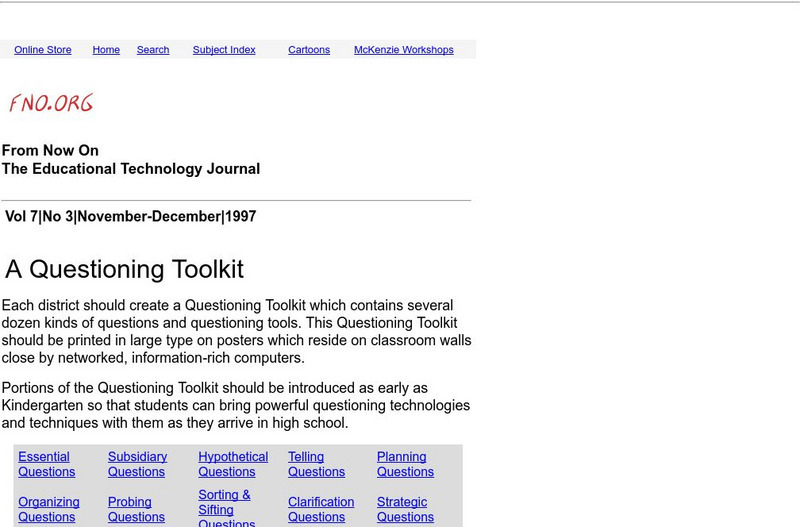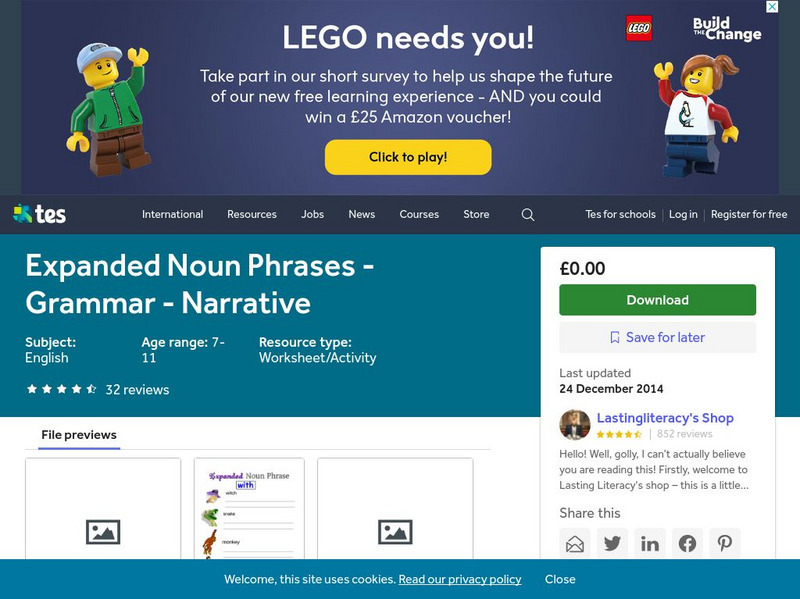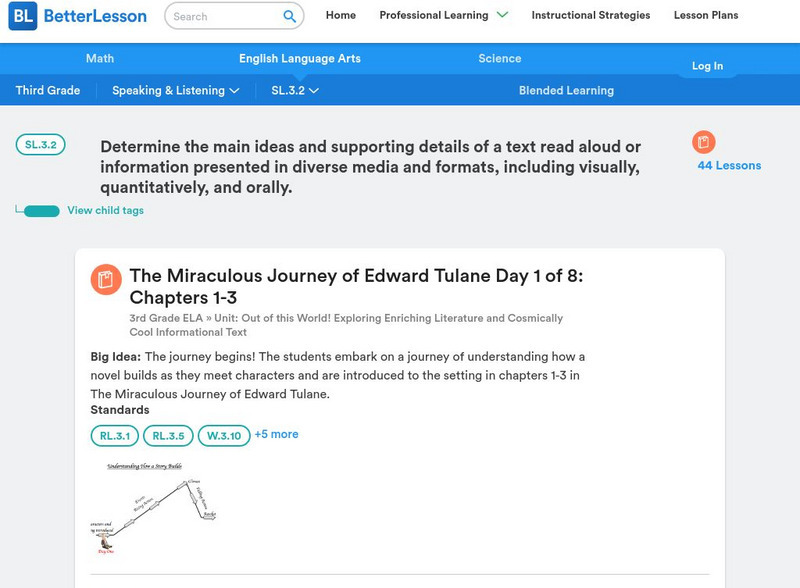Curated OER
Photosynthesis and Plant Reproduction
Young scholars explain the process of photosynthesis. For this biology lesson, students label the different reproductive parts of the flowers. They watch a short video then identify the leaf parts on the board.
Curated OER
Construct Figures to Find Specific Volume
Sixth graders use number cubes to explore volume of two-dimensional shapes. They roll a die and construct a shape using the numbers rolled as measurements of the sides. They estimate the volume of a given object, and then use the...
Curated OER
Butterfly Camouflage
Fifth graders discuss camouflage and warnings by butterflies as a class. Students design and color their own butterflies that they are to place somewhere in the classroom. Students explain why their butterfly is colored the way that it...
TeachEngineering
Teach Engineering: Sounds Like Music
Music can loosely be defined as organized sound. The lesson objectives, understanding sound is a form of energy, understanding pitch, understanding sound traveling through a medium, and being able to separate music from sound, can...
Daily Teaching Tools
Daily Teaching Tools: Graphic Organizers for Teaching Writing
This Daily Teaching Tools collection provides graphic organizers for writing. Elaborate graphic organizers for the following areas are provided: persuasive essays, expository essays, paragraph writing, fiction pieces, narrative writing,...
US National Archives
Nara: Teaching With Documents: Glidden's Patent Application for Barbed Wire
The U.S. National Archives and Records Administration (NARA) provides an elaborate lesson plan on Joseph Glidden's patent for barbed wire. Content includes extensive background information about barbed wire, images of the original patent...
Daily Teaching Tools
Daily Teaching Tools:more Graphic Organizers for Teaching Literature and Reading
This Daily Teaching Tools collection provides graphic organizers for teaching reading and literature. Elaborate graphic organizers are provided for the following: story maps, character study charts, making text connection maps, conflict...
Other
Literature Circles Resource Center: Teaching Students How to Discuss
Teachers are given strategies and hands-on approaches to help students prepare for a discussion and participate as active members of it.
LD Online
Ld Online: Strategies for Composition in the Writing Process
An extensive discourse on strategies to teach writing skills to learning disabled children. Authors have developed an approach known as self-regulated strategy development (SRSD). In this paper they elaborate on the research they...
Edutopia
Edutopia: Teaching Your Students How to Have a Conversation
While it is impossible to know all of the reasons, there is no doubt that learning to listen and talk is an extremely important way to broaden knowledge, enhance understanding and build community. Perhaps this is why the core standards...
Other
Questioning.org: The Question Mark
Jamie McKenzie's book, Beyond Technology: Questioning, Research and the Information Literate School, emphasizes the need to teach children to ask important questions, then research the answers, instead of just learning information...
Other
Duke: Center for Inquiry Based Learning
Duke University has established the Center for Inquiry-Based Learning. It serves to enhance math and science lessons. Click on Resources for good examples of Inquiry-based lesson plans.
FNO Press
From Now On: A Questioning Toolkit
What exactly is a "questioning tool kit"? This resource provides techniques for asking essential questions, hypothetical questions, telling questions, planning questions and organizing questions.
Better Lesson
Better Lesson: Go, Dog, Go!
Students will read the story and describe the picture details of the illustrations in relation to the text and write about one of the story events. "Go, Dog, Go!" contains illustrations that are very elaborate and crazy while the text is...
TES Global
Tes: Expanded Noun Phrases Grammar Narrative
[Free Registration/Login Required] This activity gives students the opportunity to add a prepositional phrase to a noun. In this activity, students will use the preposition "with" to begin the elaborative phrase for each provided noun.
Books in the Classroom
Carol Hurst's Children's Literature Site: Revolutionary War and Children's Lit
An elaborate list of activities to use when teaching about the Revolutionary War. Near the bottom there are links to lists of all types of books to use with students while studying this topic.
Better Lesson
Better Lesson: Sl.3.2: Determine the Main Ideas and Supporting Details of a Text
Links to 44 lessons and activities that build student skills in standard SL.3.2: Determine the main ideas and supporting details of a text read aloud or information presented in diverse media and formats, including visually,...



